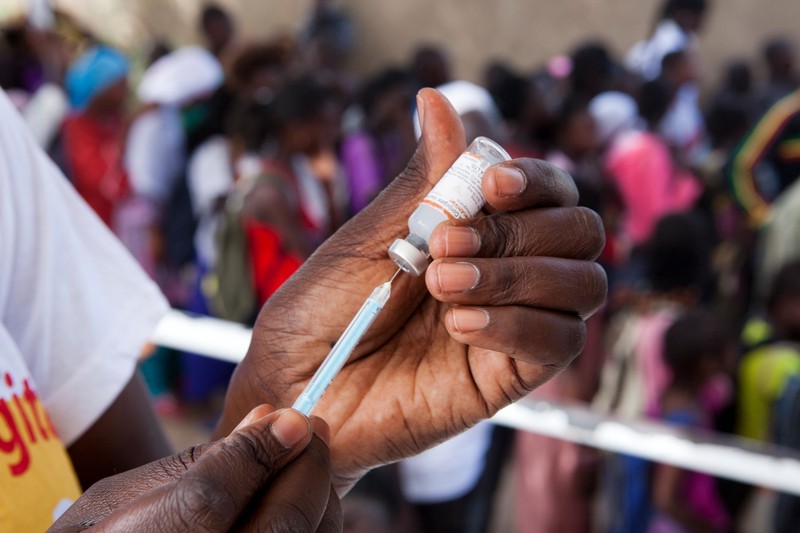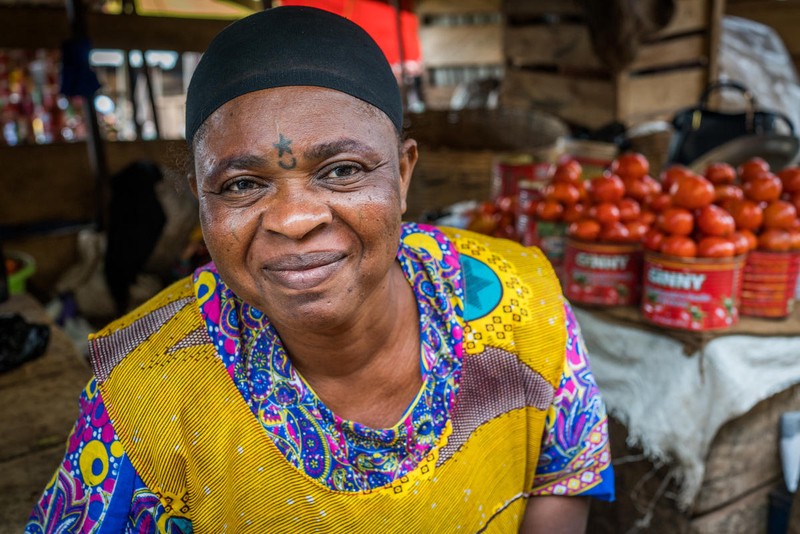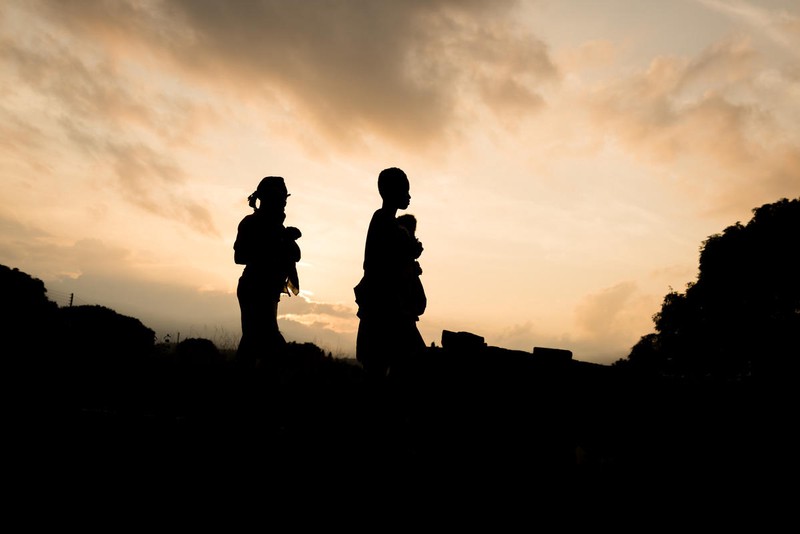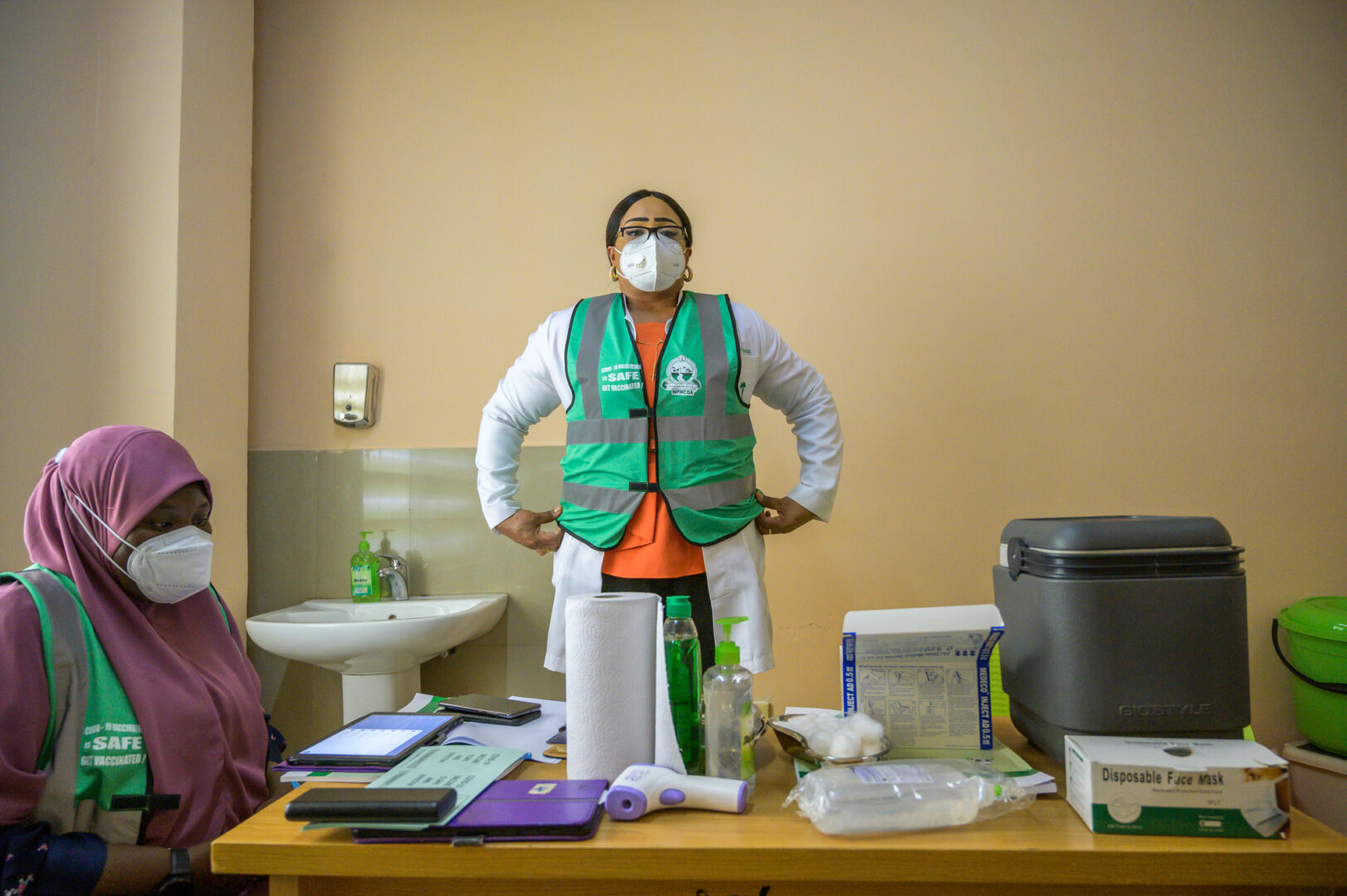The song, “We Are the World” was everywhere. Written by Michael Jackson and Lionel Richie, it brought together 80s celebrity icons like Cyndi Lauper, Huey Lewis, and Tina Turner, to raise funds for famine relief in Africa. Is the song stuck in your head yet? (You can ask Alexa to play it now, or — thanks to YouTube — you can watch it below.)
Nearly 40 years later, we are the world is truer today than it was back in 1985. We are a globalized world. We have global trade, travel, and technologies, we have erased borders and barriers. And, we know firsthand that viruses know no borders or barriers either. Where people are on the move, we will inevitably see COVID-19 infections continue to circulate and new virus variants will emerge.
Vaccines are an integral solution to ending this pandemic.

Scientific breakthroughs and incredibly fast innovation brought the world vaccines that are safe and effective in unimaginable time.
Many of us will have the good fortune of living in a wealthy country that has procured enough vaccines for its adult population. It is understandable that countries want to protect their citizens — and that those citizens want to protect themselves and their loved ones. The challenge is that until people everywhere are vaccinated, people everywhere are at risk.
Nearly 40 years later, we are the world is truer today than it was back in 1985. We are a globalized world.
Yet, too many countries are left behind in the initial roll-out of vaccines globally. It is estimated that nearly 2 billion people in more than 90 low-income countries will be vaccinated by the end of the year. That is a huge feat for global health organizations like UNICEF, the Global Fund, Gavi, and the World Health Organization to orchestrate. However, those vaccine doses cover only about 20 percent of the population of these countries, which means that too many individuals will remain at risk.
Rolling out vaccines is logistically complicated with purchases, shipments, cold chain storage, and then training of health providers. Simultaneously, organizations need to share information about the vaccines, their safety, and how and where to go for a vaccination.
Ghana Makes History: The first African country to receive COVAX vaccines
The good news is that the largest and most rapid roll out of vaccines that the world has ever undertaken is underway.
History was made on February 24 when the first shipment of vaccines from Gavi’s COVAX arrived at the Kotoka International airport in Accra, Ghana. The 600,000 doses were loaded onto refrigerated trucks and taken to the government’s central storage facility, where many vials will be prepped to board another plane for their journey to health facilities across the country. For a portion of these vaccines, the last few miles of their trip will be made by drone to some of the hardest-to-reach communities.
The challenge is that until people everywhere are vaccinated, people everywhere are at risk.
As of March 15, COVAX has shipped more than 29 million COVID-19 vaccines to 46 countries across Africa and Asia, allowing life-saving immunization campaigns to begin. The AstraZeneca vaccine comprised the majority of shipments, with a smaller amount from Pfizer.

Countries including Cote d’Ivoire, Nigeria, Rwanda, Kenya, and Malawi have launched vaccination campaigns, and health workers are now receiving protection again this virus as they continue to care for others who have fallen ill.
All eyes will be on these vaccination campaigns as Gavi and its partners gauge whether there are enough healthcare workers and sites to ramp up efforts as vaccine supplies increase.
The news of vaccines rolling out globally is both uplifting and a reminder that we are in this together — as one world united in our common humanity where everyone deserves the opportunity to pursue a healthy, productive life.
As Stevie Wonder and Lionel Richie belt out to open “We are the World”:
There comes a time
When we heed a certain call
When the world must come together as one

If you are interested in tracking global vaccine distribution, you can follow Our World in Data.
To help with global response efforts, Gates Philanthropy Partners’ Combatting COVID-19 Fund continues to grant to international organizations like CEPI as well as local organizations in Africa and South Asia.
And, if you are looking to relive the spirit of the 1980s efforts to unite the world through song, check out Global Citizen, which has upcoming actions, discussions, and performances focused on global recovery.
Highlights from the early roll out of vaccine across Africa and Asia
- 24 Feb 2021: 600,000 COVAX vaccines arrive in Ghana: beginning of global roll-out
- 25 Feb 2021: 504,000 doses shipped from Mumbai airport, bound for Côte d’Ivoire Friday
- 26 Feb 2021: More than half a million doses arrived on Friday in Côte d’Ivoire from Mumbai
- 26 Feb 2021: South Korea receives 117,000 doses of the Pfizer/BioNTech vaccine as a self-financing participant in COVAX Facility
- 1 March 2021: Côte d’Ivoire starts its first COVID-19 COVAX vaccinations
- 1 March 2021: Ghana starts its first COVID-19 COVAX vaccinations
- 2 March 2021: First doses of COVAX vaccines arrive in the Gambia
- 2 March 2021: First doses of COVAX vaccines arrive in DRC
- 2 March 2021: 324,000 doses of COVAX vaccines arrive in Cambodia
- 2 March 2021: 624,000 doses of COVAX vaccines arrive in Angola
- 2 March 2021: 3.94 million doses of COVAX vaccines arrive in Nigeria
- 3 March 2021: First Pfizer vaccines funded by the COVAX Facility arrive in Rwanda
- 3 March 2021: 820,000 doses of COVAX vaccine arrive in Sudan
- 3 March 2021: First doses of COVAX vaccines arrive in Kenya
- 3 March 2021: Rwanda receives first shipment of COVAX AZ vaccines
- 4 March 2021: 500,000 doses of COVAX vaccines arrive in the Philippines
- 5 March 2021: 500,000 doses of COVAX vaccines arrive in the Philippines
- 5 March 2021: Wave of deliveries brings total COVAX doses shipped to 12 million
More deliveries are shared on Gavi’s website.

